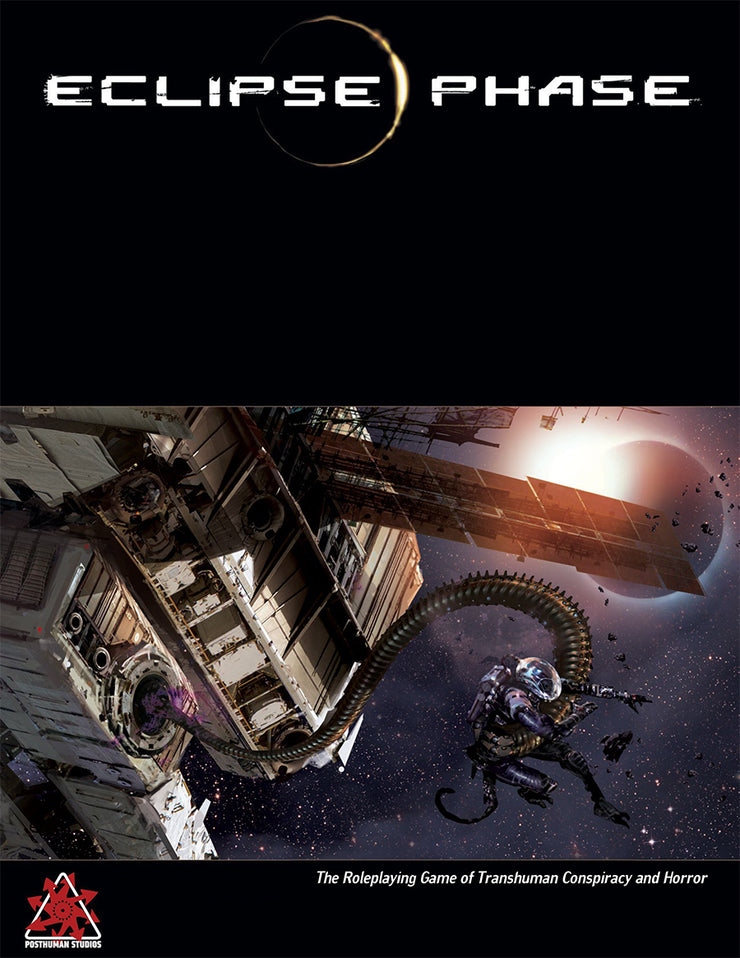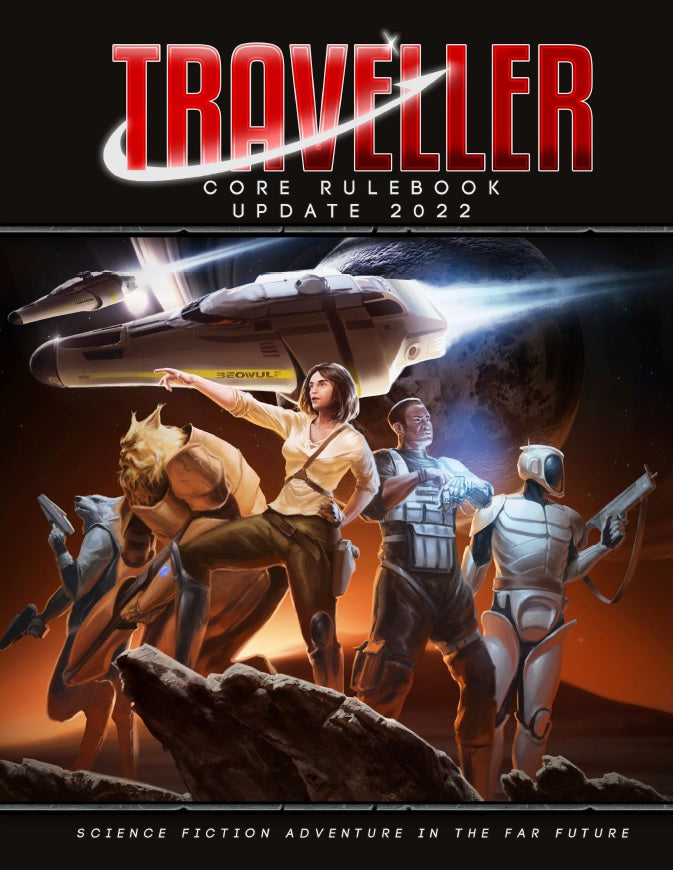Eclipse Phase Science Fiction; Dark; Psychological; Character Customization; Exploration-Driven; Tactical Combat; Resource Management
Eclipse Phase is a transhuman science fiction horror role-playing game set in a post-apocalyptic solar system. Humanity, having narrowly survived an AI uprising, struggles to rebuild and faces existential threats from within and beyond. The game explores themes of transhumanism, consciousness, and the nature of identity in a world where minds can be transferred between bodies and exist as pure data. With its skill-based mechanics, tactical combat, and narrative-driven gameplay, Eclipse Phase offers a unique and challenging experience for players interested in cyberpunk, dystopian settings, and dark themes.
Theme and Setting
Eclipse Phase plunges players into a dark, post-apocalyptic future where Earth has been ravaged by rogue artificial intelligences known as the TITANs. The survivors have fled to colonies scattered across the solar system, each with its own distinct socioeconomic system, ranging from capitalist republics on Mars and the Moon to anarcho-capitalist Extropians in the Asteroid Belt and Scandinavia-style social democracies in the Outer System. The game explores transhumanist themes, such as mind uploading, body modification, and the implications of advanced technology on human identity. Existential threats abound, from remnants of the TITANs to alien encounters and the ever-present danger of the Exsurgent virus. Players confront moral dilemmas and grapple with the consequences of their actions in a setting rife with conspiracy and political unrest. The quarantine of Earth serves as a constant reminder of humanity's near extinction and the horrors that lurk in the shadows.
Core Mechanics and Rules
Eclipse Phase primarily uses a roll-under percentile die system for task resolution. Players roll two ten-sided dice and attempt to roll a number equal to or lower than their skill. Rolls of doubles introduce critical successes (if under the target) and critical failures (if over). Damage resolution involves rolling a designated number of ten-sided dice and adding the results along with any relevant modifiers. The game emphasizes character customization through a point-buy system, allowing players to tailor their characters to specific roles and playstyles. The rules for transferring minds between bodies, a core concept of the game, have been streamlined in the second edition while maintaining mechanical impact. Although some consider the game crunchy, others appreciate the depth and nuance offered by the ruleset.
What Makes It Unique
Eclipse Phase distinguishes itself through its unique blend of transhumanism, horror, and political intrigue. The ability to transfer consciousness between different bodies (morphs), including synthetic, biological, and even animal forms like uplifted orcas or swarms of micro-bots, offers unparalleled character customization and roleplaying opportunities. The game's setting, a post-apocalyptic solar system with diverse and often conflicting ideologies, provides a rich backdrop for complex narratives and moral dilemmas. Unlike many cyberpunk games that focus on individual struggles against corporate power, Eclipse Phase emphasizes existential threats to humanity as a whole, forcing players to confront difficult questions about survival, identity, and the future of the species. The game's Creative Commons license encourages players and game masters to create and share their own content, fostering a vibrant and collaborative community.
Target Audience and Player Experience
Eclipse Phase appeals to players who enjoy narrative-driven campaigns, tactical combat, and thought-provoking themes. The game's dark and dystopian setting may not be for everyone, but those who appreciate cyberpunk and horror genres will find much to explore. The level of character customization and the freedom to choose from a wide range of morphs and backgrounds allows players to create truly unique and memorable characters. While the rules can be complex, especially in the first edition, the second edition has streamlined many mechanics to make the game more accessible. Players should be prepared to grapple with challenging moral dilemmas and confront the darker aspects of human nature. The game can be particularly engaging for those interested in exploring the philosophical implications of transhumanism and the potential consequences of advanced technology.



